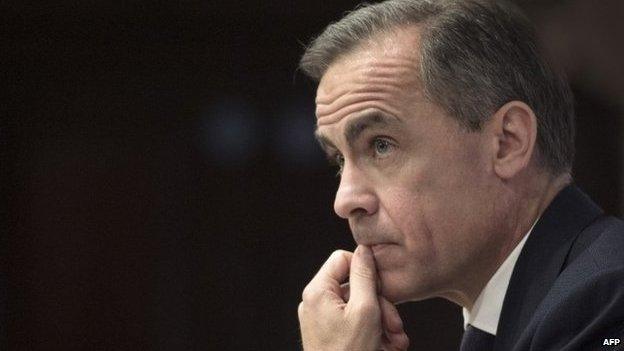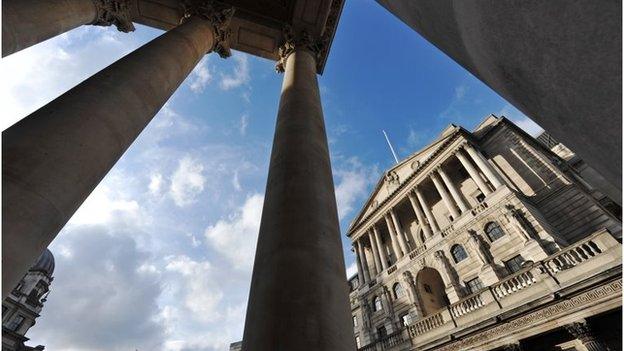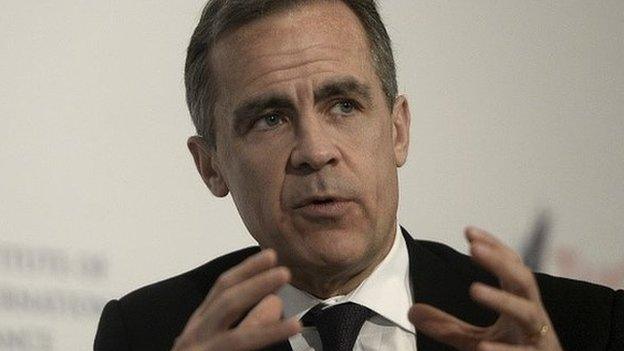'Extremely foolish' to cut rates, says Mark Carney
- Published

Mark Carney has said it would be "extremely foolish" for the Bank of England to cut interest rates to try to combat low inflation.
The Bank of England governor reiterated comments made in February that the drop in prices was temporary and largely caused by the sharp fall in oil prices.
Mr Carney said he expected inflation to fall to around zero and stay there for much of the rest of the year.
UK inflation fell to 0.3% in January, marking its lowest rate on record.
"The thing that would be extremely foolish would be to try to lean against this oil price fall today [and] try to provide extra stimulus to try to get inflation up at this point in time.
"The impact of that extra stimulus ...would happen well after the oil price fall had moved through the economy and we would just add unnecessary volatility to inflation. That would be foolish," Mr Carney told the House of Lords economic affairs committee.
But he said the Bank was "vigilant to the possibility" that a period of low prices, such as in energy and food, could start to change consumer expectations hitting spending and wage growth.
Wage fears
Mr Carney's words chimed with a speech by Monetary Policy Committee (MPC) member Ian McCafferty who said the decline in oil prices was likely to dampen inflation for a long time.
But Mr McCafferty, who had consistently voted for higher interest rates before voting to keep them at their current 0.5% low, also warned that long-term low inflation could push down wage growth.
"It is therefore not a risk that we can dismiss," Mr McCafferty said in a speech at Durham University in the north-east of England.
Oil exploration
The price of oil has halved since June, with Brent crude currently trading at $56.42.
With high levels of oil output from the US and no sign of a sustained economic recovery in Europe, most experts believe prices will remain low for the foreseeable future.
However, the low cost of crude may also make investment in some new wells uneconomical - which means prices could rise in the longer term.
But Saudi Arabia's King Salman, who acceded to the throne in January after the death of his brother King Abdullah, said earlier that low oil prices would not halt progress in his country.
King Salman said the kingdom would continue oil and gas exploration despite the fall in crude prices.
Saudi Arabia is the world's largest oil exporter.
- Published5 March 2015

- Published24 February 2015

- Published12 February 2015
